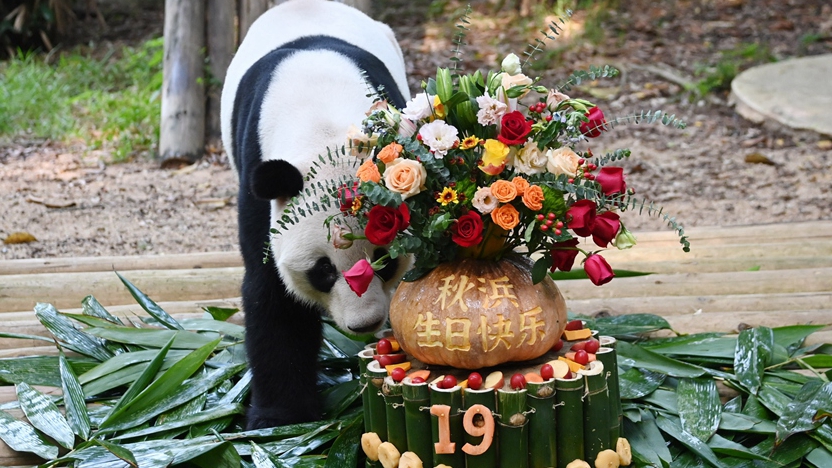China makes big strides in developing whole-process people's democracy in past 10 years
In the first half of 2022, 319,000 posts left on the Message Board for Leaders, a section on the People's Daily Online website, were replied by leaders and cadres nationwide.
Over the past 10 years, a total of over 3 million posts on the section were replied.
The section is a platform from which leaders and cadres hear the voices of the people, learn the difficulties faced by the people, and solicit opinions from the people. It vividly explains the value and purposes of the Chinese democracy that is "for the people" and demonstrates the unique advantages of the whole-process people's democracy.
Democracy is not an ornament to be used for decoration. It is to be used to solve the problems that the people want to solve. Whole-process people's democracy in China is a complete system with supporting mechanisms and procedures. It prevents individuals from manipulating the political process to win elections, and leaves no room for politicians to shower promises while campaigning and break them all once elected.
Whole-process people's democracy integrates process-oriented democracy with results-oriented democracy, procedural democracy with substantive democracy, direct democracy with indirect democracy, and people's democracy with the will of the state. It is a model of socialist democracy that covers all aspects of the democratic process and all sectors of society. It is a true democracy that works.
An accurate understanding and a determination to forge ahead are preconditions and the key for realizing, developing, and enriching democracy. A sound and genuine democracy must allow the people to become masters of the country.
The people's status as masters of the country is the essence of people's democracy. From the system of People's Congresses to the system of multiparty cooperation and political consultation under the Communist Party of China (CPC) Leadership, from the broad patriotic united front to the system of regional ethnic autonomy, and from "courtyard discussions" to "community talks," the people's status as masters of the country is the bedrock of all the systems of the country. These well-coordinated and comprehensive institutional procedures serve to put into place diverse, open, and well-organized democratic channels.
In practice, the principle of the people being masters of the country is manifested in the Party's governance policies and measures, in all aspects of the work of Party and state organs at all levels, and in the efforts to meet the people's expectation for a better life. In a word, China's whole-process people's democracy is one that centers on the interests of the people.
Democracy starts with the full expression of the people's wishes, but if people can only voice their wishes but have no way to fulfill them, that is no real democracy. China's whole-process people's democracy covers the economic, political, cultural, social, eco-environmental and other fields, with a focus on national development, social governance and people's lives. Whole-process people's democracy is a comprehensive and coordinated system involving extensive and regular participation, ensuring that the people's voices are heard and their wishes are represented in every aspect of China's political and social life.
In making and implementing decisions on major issues concerning reform, development and stability, and on matters bearing on the vital interests of the people, China conducts extensive consultations in all fields and at levels through various channels, including proposals, conferences, discussions, seminars, hearings, assessments, consultations, the internet, and opinion polls.
Through open-door legislation by the National People's Congress (NPC) and transparent decision-making by the government, more and more ideas and suggestions of the general public are reflected in the major decisions of the Party and the government.
China has ensured that its people have channels to express their aspirations, wishes and demands on issues ranging from important national strategies and policies to social governance and basic necessities of life, enabling their voices to be heard and their requests to be answered.
On a wall in the Gubei Civic Center in Hongqiao subdistrict, Changning district of Shanghai, there is a watercolor painting of a rainbow bridge. On the painting, Hongqiao stands on one end of the bridge and the Great Hall of the People, the meeting place for the full sessions of the NPC, stands on the other.
As one of the first grassroots-level legislation contact point designated by the Legislative Affairs Commission of China’s NPC Standing Committee, the Hongqiao contact point has participated in opinion collections for 67 draft laws and provided 1,363 pieces of feedback. It fully demonstrates the strong vitality of the Chinese democracy.
As long as China embraces the people-centered development philosophy and unswervingly promotes whole-process people's democracy, it will surely ensure the sound development of democracy and pursue well-rounded human development and common prosperity for everyone.
Photos
Related Stories
- China's whole-process people's democracy contributes new model to international political spectrum
- U.S. democracy faces several systemic threats: scholar
- U.S. democracy not viable form of government in 1st place: report
- Arabs lose faith in Western democracy to deliver economic stability: BBC
- China’s whole-process people’s democracy revolutionizes understandings on democracy
Copyright © 2022 People's Daily Online. All Rights Reserved.









